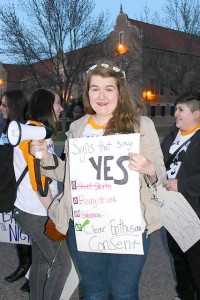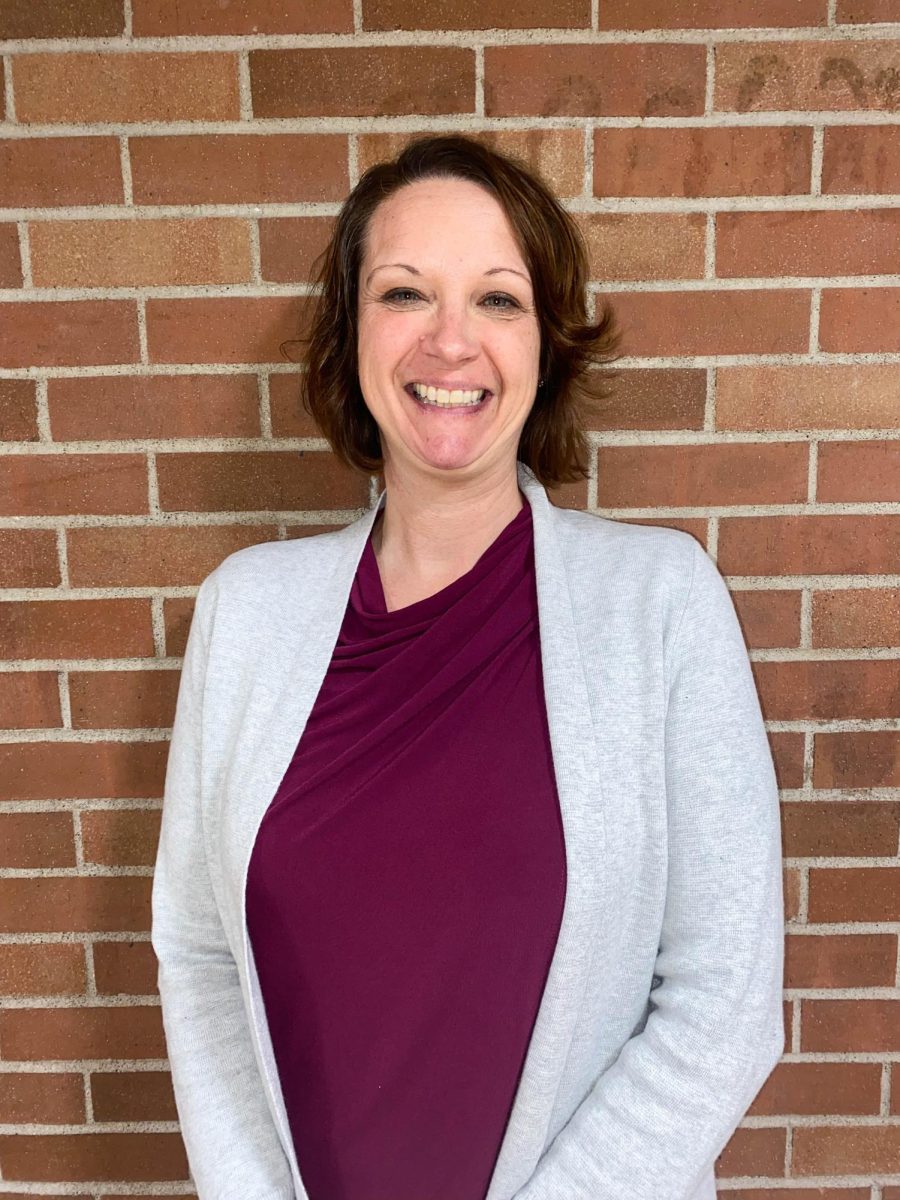
Elizabeth Pulanco / Winonan
The ability to create a community out of shared experiences is not only helpful when trying protest for a cause, but it is also a vital aspect in helping members of the community heal.
“Take Back the Night” is an event which incorporates both protesting and community-building characteristics since the 1970s. Originally started in Europe, the event created a movement.
Winona State University’s women’s gender and sexual studies professor Tamara Berg described this movement as “a way to protest a culture where women aren’t safe to walk alone at night.”
This movement has been embraced by colleges around the world and has been hosted in Winona for 21 years. Berg has had the opportunity to attend the event in Winona since the beginning.
“I have either attended the event or helped organize it for the last 21 years,” Berg said. “I actually attended the first one with my two- year-old son in the stroller.”
This year, “Take Back the Night” is being turned into a weeklong event, featuring art shows and seminars about preventing sexual assault. The initial Speak Out and march will take place on Tuesday, April 12 and will begin with individuals sharing their personal stories about how sexual assault has impacted their lives.
Berg believes the Speak Out portion of the event gives survivors a sense of control over what has happened to them.
“The most powerful part of the event is when a survivor tells their story for the first time. Witnessing this is very meaningful,” Berg said. “I have a lot of respect for anyone who is at that point where they want to stand up and share their story. Speaking out changes the culture.”
After the Speak Out, Winona community members and students will march through Winona State’s campus and continue their protest against sexual assault.
Senior Kyler Steffe has been going to the event for two years, and this year she has been in charge of setting up refreshments and gathering funding requests.
“I heard about the event and went my sophomore year. It was very emotional and I wanted to stay, but I was there by myself,” Steffe said. “I joined the RE Initiative my junior year and went with the group. Being with the group helped me speak about my experiences.”
Senior Julia Roess also found the event a compelling place to tell her story about being a survivor.
“For me, the event helped me accept what happened to me, and led me into wanting to stop blaming myself and stop thinking about it in a way that was damaging and think of it as more of an empowering part of who I am,” Roess said.
Along with the Speak Out and march, students have joined a campaign called #StartByBelieving to raise the awareness of sexual assault on a social media.
Senior Sam Atkins has been working with others to support the campaign.
“This is a national campaign where people can vow to support survivors when they hear their stories,” Atkins said. “ A lot of survivors have the problem of not being believed when they tell others they have been assaulted, and this can make it harder for people to heal.”
Atkins is also involved with organizing a self-care event before the Speak Out and march to help survivors prepare for the event.
“This workshop will give survivors the tool to take care of themselves if they are triggered during the event,” Atkins said.
Triggering occurs when a person experiences something that may cause them to relive a traumatic memory. Listening to a survivor speak out is a powerful experience, but it may also cause another survivor to experience harmful memories related to their assault.
In addition to the self-help workshop, stress balls will also be provided to individuals at the event. The fire-dancing club will also be participating in the event, and will perform a meditative routine after the march.
“Watching fire can be very therapeutic for some people,” Steffe said.
After being involved with the event for over two decades, Berg has been able to see the event continue to impact people.
“It is important for students who are survivors and don’t feel comfortable speaking out to be able to hear others stories and know they’re not alone,” Berg said.





























































